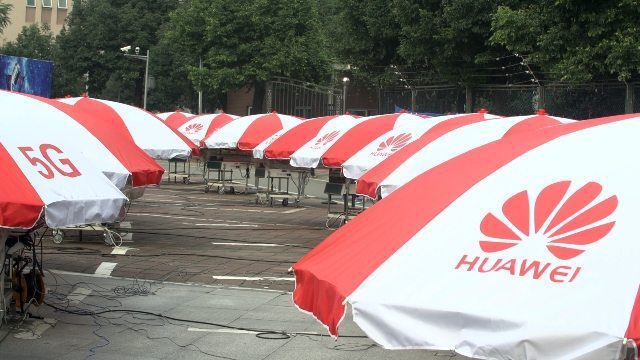House and Senate intelligence officials reportedly involved in decision
According to a new report in the Wall Street Journal, AT&T has backed out of a deal with Huawei to sell the Chinese technology company’s smartphones in the U.S. Unlocked Huawei devices are already available in the U.S., but the company doesn’t have any resell arrangements in place with domestic carriers despite being the world’s third largest smartphone seller behind Apple and Samsung.
The news about AT&T comes on the first day of the annual Consumer Electronics Show in Las Vegas where Huawei was rumored to have planned to make an announcement regarding a carrier deal. Last month Huawei said it would sell its flagship smartphones through U.S. carriers beginning this year. Huawei did not say which carriers will sell its phones, but AT&T is a leading candidate – XDA Developers recently found a Huawei Mate 10 Pro with firmware named “BLA-A09-att-us.”
The United States is a key growth market for Huawei, but the company has faced years of hurdles particularly around its network infrastructure gear. In the latest, “Last month, members of the Senate and House intelligence committees sent a letter asking the Federal Communications Commission to review any relationship with Huawei and requested that the FCC get briefed on the security concerns raised in 2012. The letter also raised concerns about Huawei’s growing smartphone business,” according to the Wall Street Journal.
That 2012 mention is a reference to an investigative report put out then by House’s Permanent Select Committee on Intelligence, which was the results of an investigation into how Huawei and ZTE could potentially enter the U.S. market. In a nutshell, officials think the two firms pose a security and spying threat if they’re allowed to equip U.S. networks with their infrastructure gear.
From the report: “Despite hours of interviews, extensive and repeated document requests, a review of open-source information, and an open hearing with witnesses from both companies, the committee remains unsatisfied with the level of cooperation and candor provided by each company. Neither company was willing to provide sufficient evidence to ameliorate the committee’s concerns. Neither company was forthcoming with detailed information about its formal relationships or regulatory interaction with Chinese authorities. Neither company provided specific details about the precise role of each company’s Chinese Communist Party Committee. Furthermore, neither company provided detailed information about its operations in the United States. Huawei, in particular, failed to provide thorough information about its corporate structure, history, ownership, operations, financial arrangements, or management. Most importantly, neither company provided sufficient internal documentation or other evidence to support the limited answers they did provide to Committee investigators.”

